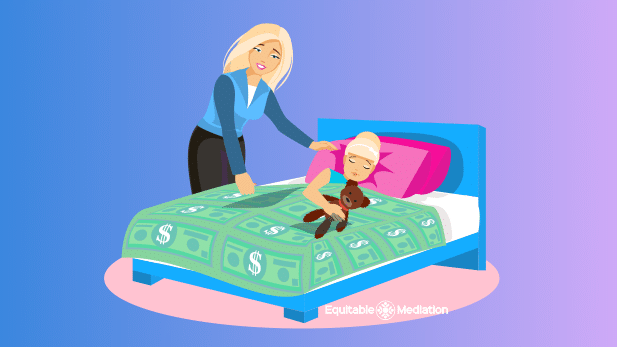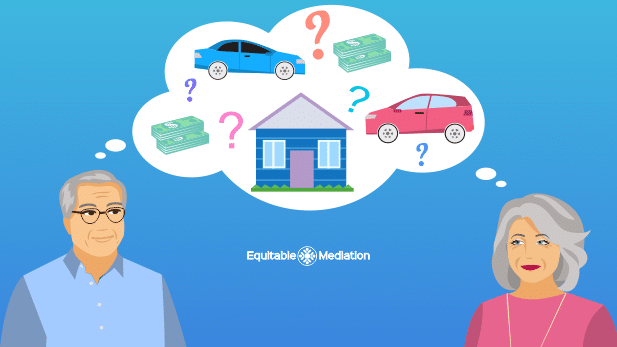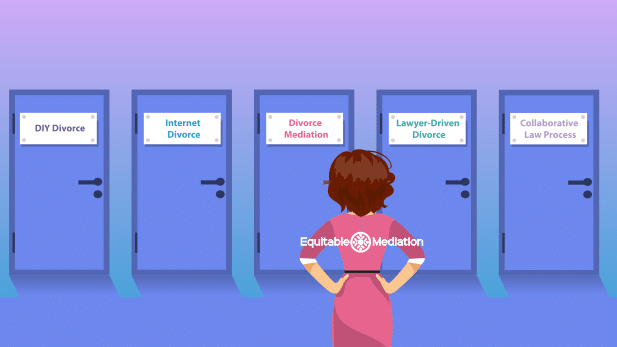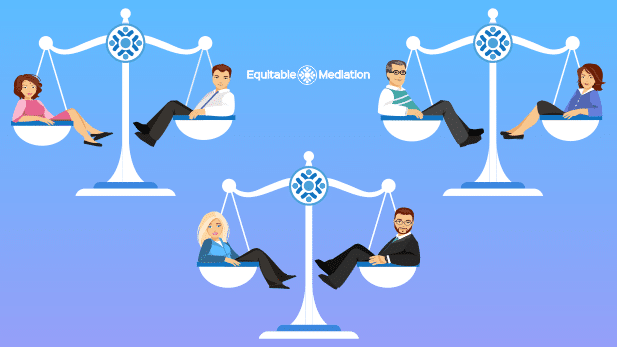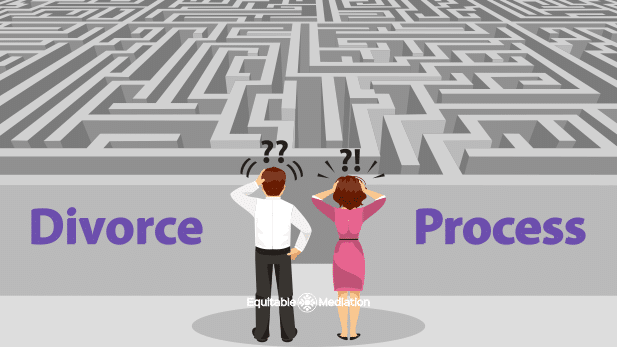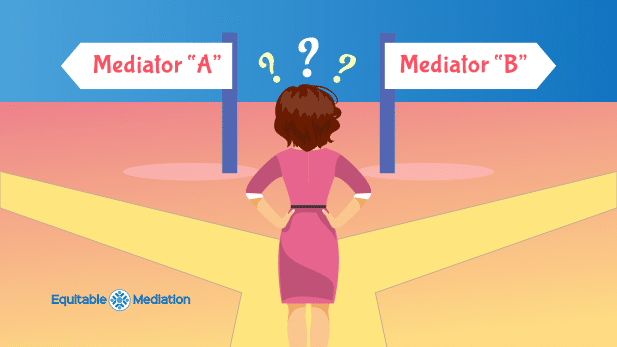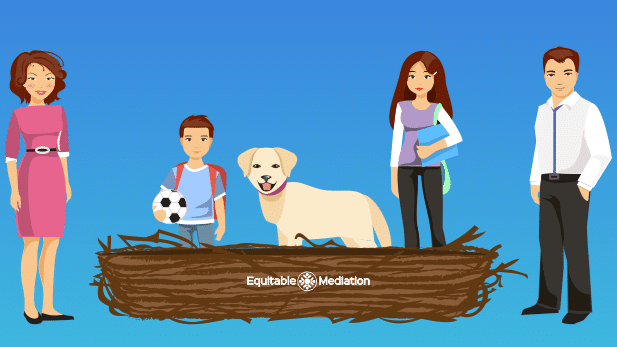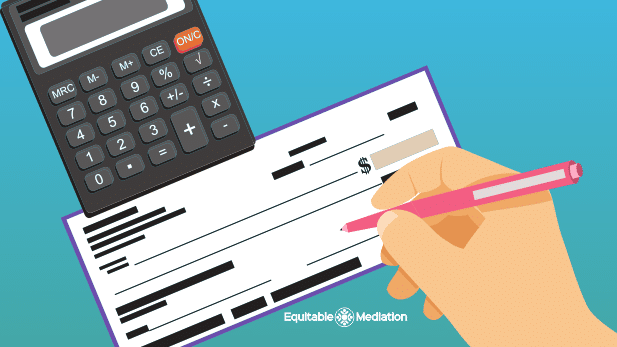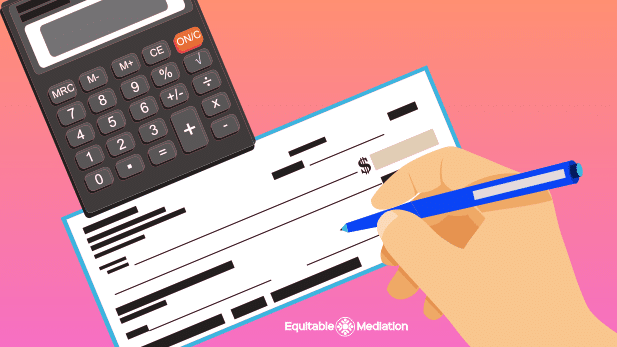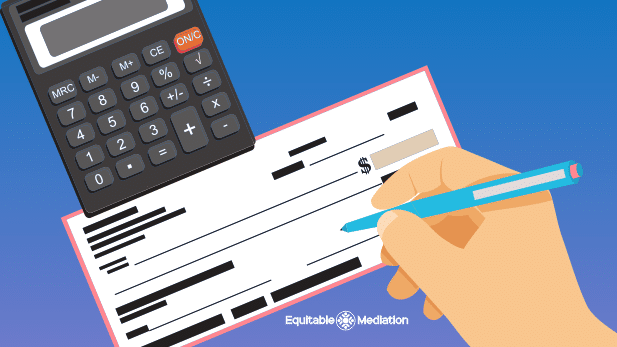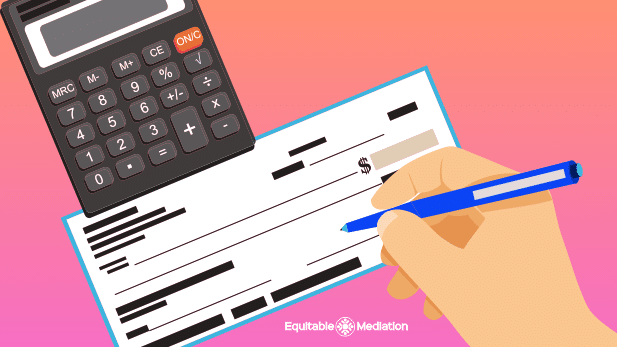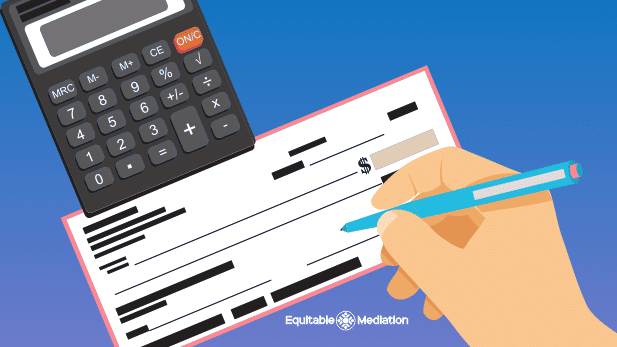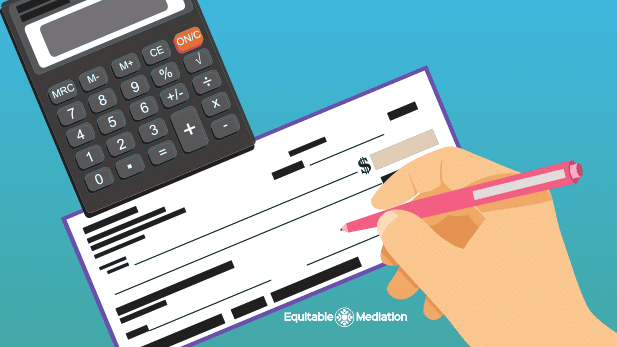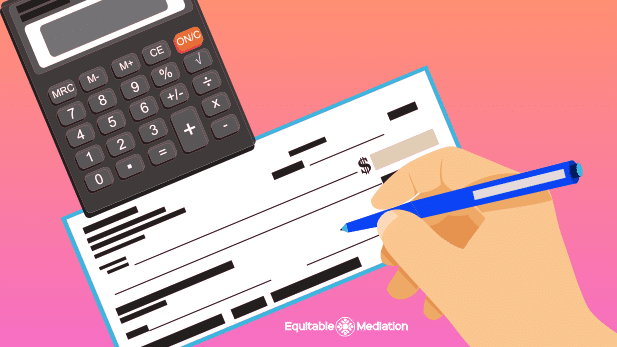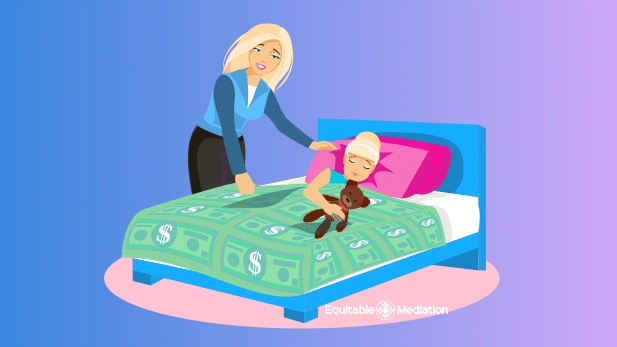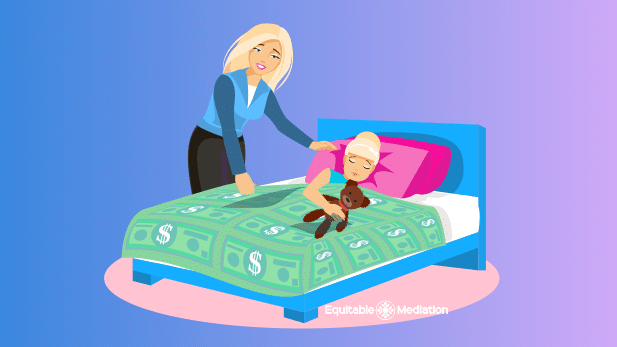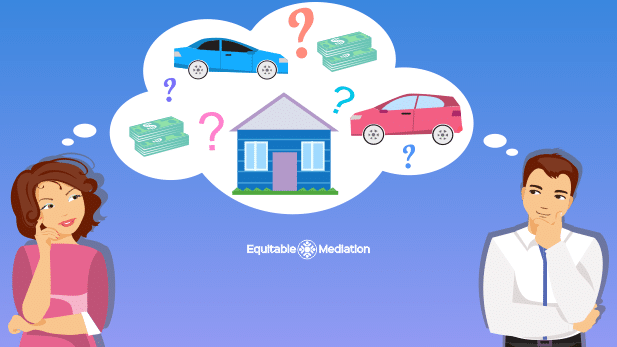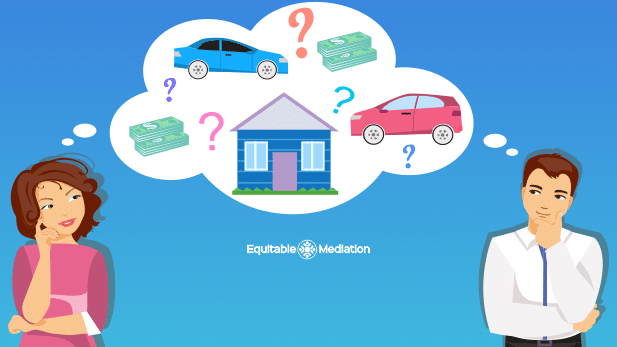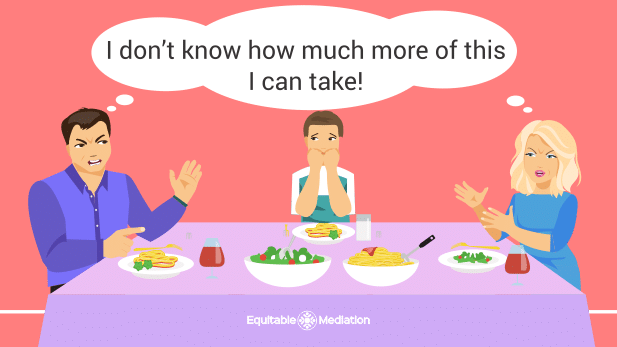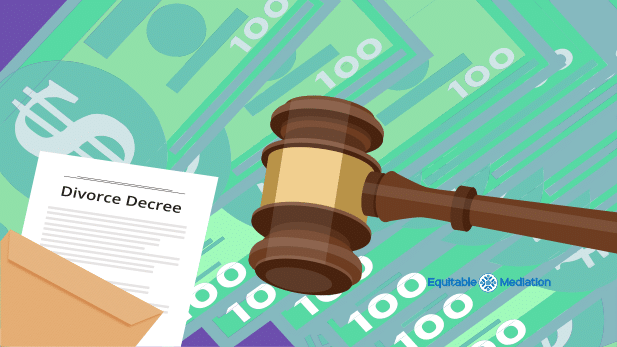Who gets the house in a divorce? Here are 7 questions you need to ask (and answer) to help you decide who will get the house in your divorce.
How to Have an Amicable Divorce
Amicable divorce is possible and all about choices. Learn how to divorce amicably and the 5 things you must do to have a civil and peaceful divorce.
Topics: Preparing for Divorce Divorce Mediation
Child Support in California in 2024: More Complex Than You Might Think
Determining child support in California is a lot more complex than you might think. Learn what you need to know so you can secure your child's future!
Topics: Divorce Mediation Divorce Issues
Gray Divorce Signs | Reasons | Older Divorce Avoidance
Facing a gray divorce? Learn the signs of gray divorce, issues and challenges to watch out for, and the best way to resolve them.
Topics: Preparing for Divorce Divorce Mediation Divorce Issues
Can Living Together After Divorce Work? Yes! Here’s How.
Living together after divorce can be a good option for couples to consider. Learn the benefits and challenges of cohabitation after divorce so you can decide if it is right for you.
Topics: Divorce Issues
What Does Divorce Mediation Cost? Learn The Real Truth
A mediator's hourly rate is only 1 of 4 factors that contribute to divorce mediation costs. Learn what the others are and how to ensure your divorce mediation is as cost-effective as possible.
Topics: Divorce Mediation
Divorce Mediation vs Lawyer: Which is Right for You?
Learn how divorce mediation compares to divorce with lawyers. This way, you can choose the professional right for you.
Topics: Preparing for Divorce Divorce Mediation
The 5 Divorce Options and How to Choose The Right One
Learn about the 5 divorce options so you can choose the one right for you. Read our in-depth guide to the 5 options for how to get a divorce.
Topics: Preparing for Divorce
How are Assets Divided in a Divorce?
Learn how assets are divided in a divorce. And what you and your spouse can do to get a fair outcome and protect your assets from being wasted on legal fees.
Topics: Preparing for Divorce Divorce Issues
Divorce Mediation Tips and a Divorce Mediation Checklist
Here are a few divorce mediation tips and a divorce mediation checklist to help ensure your mediation stays peaceful and on track.
Topics: Preparing for Divorce Divorce Mediation
How to Negotiate a Divorce Settlement With Your Spouse That's Fair
Want to ensure you get a fair divorce settlement? Here are some steps to take and things you must do to ensure your divorce agreement is fair.
Topics: Preparing for Divorce Divorce Mediation
How to Prepare for Divorce – 54 Experts Share Their Best Tips
We asked a panel of experts to reveal their best tips on how to prepare for divorce so it's peaceful from start to finish. Learn what they had to say.
Topics: Preparing for Divorce
Divorce Advice for Men: How To Prepare For Divorce as a Man
If you follow these actionable divorce tips for men, you’ll increase your ability to keep your proceedings amicable, efficient, child focused and cost-effective.
Topics: Preparing for Divorce
10 Compelling Benefits of Divorce Mediation
Here are the 10 top benefits of divorce mediation for divorce. Before you hire lawyers, learn why you owe it to yourself and your kids to mediate instead.
Topics: Preparing for Divorce Divorce Mediation
Considering Lump Sum Alimony? Avoid These 5 Mistakes.
Learn what a lump sum alimony buyout is, pitfalls to avoid if you're considering one, and how to get a result that's fair to both you and your soon-to-be ex.
Topics: Divorce Mediation Divorce Issues
Facing an Empty Nest Divorce? Watch Out for These 3 Tricky Issues
Facing an empty nesters divorce? Learn the most common reasons this occurs, 3 significant challenges to watch out for, and how to get the best outcome.
Topics: Divorce Mediation Divorce Issues
How to Find Good Divorce Mediation Near Me
Here's how to determine if the mediator you're considering has the skills and experience to successfully guide you through your divorce.
Topics: Preparing for Divorce Divorce Mediation
The Importance of a Good Divorce Parenting Plan
A divorce with kids is never easy. But using mediation to develop a good divorce parenting plan increases your chances of co-parenting success. Find out why.
Topics: Divorce Mediation Divorce Issues
How to Tell Kids about Divorce and Help Them Cope
Here's some expert advice on how to tell kids about divorce.
Also included are tips to help your kids through your divorce, and what children understand by age so you as parents can spot and address any problems that arise.
Topics: Preparing for Divorce Coping with Divorce
Equitable Distribution: Who Gets What in a Divorce?
In equitable distribution, who gets what in a divorce is complicated. Working with an expert divorce mediator is key to a fair agreement. Learn why.
Topics: Divorce Mediation Divorce Issues
How Does Alimony Work?
Alimony is the most difficult issue to resolve in divorce for many reasons. Learn how it works, so you can secure your financial future.
Topics: Divorce Mediation Divorce Issues
How Does Child Support Work?
Child support is a complex divorce issue for many reasons. Learn how child support works, and how you can ensure your children's financial well-being!
Topics: Divorce Mediation Divorce Issues
I Want a Divorce But My Husband Doesn't
What can you do if you want a divorce but your husband doesn't? Here are some tips to get the best result and keep things peaceful when divorcing a reluctant spouse.
Topics: Preparing for Divorce Coping with Divorce
I Want a Divorce But My Wife Doesn't
What can you do if you want a divorce but your wife doesn't? Here are some tips to help you get your wife to cooperate and at the same time, keep things peaceful.
Topics: Preparing for Divorce Coping with Divorce
Bird Nesting Divorce: Is it Right for You?
Learn the pros and cons of a nesting divorce, also known as bird nest parenting, and how mediation can help you develop a plan that works for your kids.
Topics: Divorce Mediation Divorce Issues
My Husband Wants a Divorce. What Do I Do?
Does your husband want a divorce? Learn the 3 things you must do to protect the kids and ensure you get what you're entitled to.
Topics: Preparing for Divorce Coping with Divorce Divorce Mediation
Good Divorce Advice for a Woman with Children
This mom protected her kids from the negative effects of divorce and paved the way to her own future happiness. You can, too! Learn how to have a good divorce.
Topics: Preparing for Divorce
Divorce After 10 Years of Marriage? Why Mediation is Key!
There's a lot at stake if you are divorcing after 10 years of marriage. Learn the best way to divide, decide and resolve the critical issues.
Topics: Preparing for Divorce Divorce Mediation
Divorce and Business Owners: 7 Things You Need to Know
Facing divorce with a business involved? Learn mistakes to avoid when dividing a business in a divorce so you don't lose everything you worked so hard to build.
Topics: Preparing for Divorce Divorce Mediation Divorce Issues
My Wife Wants a Divorce. What Should I Do?
Finding out your wife wants a divorce can be shocking and scary. Learn how you can take charge and proceed without losing your kids (and your shirt) in the process.
Topics: Preparing for Divorce Coping with Divorce Divorce Mediation
For Divorce After Short Marriage Mediation is Your Best Bet
If you want your divorce after a short marriage to be fair, but don't want it to be full of drama, cost a fortune or take forever to complete, here's what to do.
Topics: Preparing for Divorce Divorce Mediation
The Challenges of Determining New York Alimony in 2024
The topic of alimony (spousal maintenance) in NY is a complicated one. Find out what you need to know and how to best resolve this complex issue.
Topics: Divorce Mediation Divorce Issues
How is Child Support Calculated in NY in 2024? 6 Things to Know
Now that you're facing divorce in NY, here's how to make sure your kids get the financial support they need in order to live healthy and happy lives.
Topics: Divorce Mediation Divorce Issues
Divorce After 20 Years: A Negotiation Survival Guide
Divorcing after 20 years of marriage (or more)? Here's what you can do to understand the issues you'll face and plan a smart course of action to preserve wealth and minimize legal bills.
Topics: Preparing for Divorce Divorce Mediation Divorce Issues
Determining Illinois Alimony in 2024
The topic of alimony in Illinois (maintenance) is complicated. Learn more about this difficult issue and the best way to resolve it.
Topics: Divorce Mediation Divorce Issues
Determining Spousal Support in Washington State in 2024
Agreeing on spousal support in Washington State is not easy to do! Learn what you need to know about this complex topic and why mediation is the best way to fairly resolve it.
Topics: Divorce Mediation Divorce Issues
Determining Alimony in California in 2024
Find out how alimony in California works and what you can do to prevent your spousal support negotiation (and divorce) from turning into a disaster!
Topics: Divorce Mediation Divorce Issues
Determining Alimony in NJ in 2024
Determining spousal support in NJ is very challenging. Learn what you need to know about this complex topic and how to get a fair alimony agreement.
Topics: Divorce Mediation Divorce Issues
Understanding Alimony in PA in 2024 and The Challenges of Resolving It
Agreeing on alimony in PA is no easy task! Learn what you need to know about this complex topic and why mediation is your best bet to resolve it.
Topics: Divorce Mediation Divorce Issues
Determining Alimony in Michigan in 2024
Agreeing on alimony in Michigan is not easy! Learn what you need to know about this complex subject and how to fairly resolve it.
Topics: Divorce Mediation Divorce Issues
How to Ensure Your Child's Well-Being in 2024 with Child Support in NJ
You may think determining child support in NJ is easy, but it's not. Learn what you need to know to ensure your children's financial well-being!
Topics: Divorce Mediation Divorce Issues
Safeguarding Your Children in 2024 with Child Support in Illinois
You might think determining child support in Illinois is easy, but it's not. Learn what to do so your kids don't suffer financially because of your divorce.
Topics: Divorce Mediation Divorce Issues
Determining Washington State Child Support in 2024: 8 Things to Know
Learn the 10 things you need to know about determining Washington State child support so you can protect your kids from becoming economic victims of divorce
Topics: Divorce Mediation Divorce Issues
Think it's Easy to Determine PA Child Support in 2024? Guess Again!
You may think determining PA child support is easy, but it's not. Learn what you need to know to ensure your children's future after your divorce.
Topics: Divorce Mediation Divorce Issues
8 Child Support in Michigan Questions You Should Be Asking in 2024
Wondering how child support works in Michigan? Find out what you need to know to ensure your children's financial well-being after your divorce.
Topics: Divorce Mediation Divorce Issues
Should I Get a Divorce?
Should I get a divorce is a question many people ask if they're unhappy in their marriage. Here's help deciding if you should get divorced or stay married.
Topics: Considering Divorce
How to Tell Your Spouse You Want a Divorce
Wondering how to tell your spouse you want a divorce without starting a war? Here are some tips to help you prepare for that difficult conversation.
Topics: Preparing for Divorce
Collaborative Divorce vs Mediation
Collaborative law vs mediation: The choice is easy when you know the differences. Learn how divorce mediation compares to collaborative divorce.
Topics: Preparing for Divorce Divorce Mediation
How to Cope with Divorce
It's normal to feel out of control while going through a divorce. Here are some tips for how to cope with divorce and make things easier on yourself.
Topics: Coping with Divorce
Community Property Washington State
Think community property in a divorce in Washington State is always divided equally? Learn how you can have a say in fairly resolving this complicated issue.
Topics: Divorce Mediation Divorce Issues
Community Property California: Not Always 50-50 in Divorce
Think community property in a California divorce is always split equally? Learn how you can actually get a say in how to divide your property and debts equitably.
Topics: Divorce Mediation Divorce Issues
11 Tragic Mistakes to Avoid in a High Asset Divorce
A high net worth divorce is much more complex than divorce with a basic asset pool. And there’s a lot more at stake! Learn why and how to protect your wealth.
Topics: Preparing for Divorce Divorce Mediation Divorce Issues
13 Signs You are Ready for Divorce
Thinking about divorce and getting one are two very different things. Here are 13 signs you are actually ready for divorce.
Topics: Preparing for Divorce Considering Divorce
101 Divorce Assets: The Ultimate List
Did you know there are over 100 potential assets in a divorce? So if you have one or more items on our divorce assets list, you might need to divide them.
Topics: Preparing for Divorce Divorce Issues
How to Have a Successful Divorce Mediation
Want a successful divorce mediation? Learn what you can do to ensure your mediation goes smoothly and results in the best possible outcome.
Topics: Divorce Mediation
Marriage Mediation: Mediation to Stay Married
A marriage mediator helps couples resolve issues, improve their relationship and avoid divorce. Learn how using marriage mediation can save your marriage.
Topics: Considering Divorce
How Much Does a Divorce Cost?
The cost of divorce will vary based on a number of factors. Learn what those factors are and how they affect how much it will cost you to get divorced.
Topics: Preparing for Divorce
What am I Entitled to in a Divorce?
What am I entitled to is a question many people facing divorce want to know. There's no easy answer, but here's a tip to help you get what you deserve in your divorce agreement.



